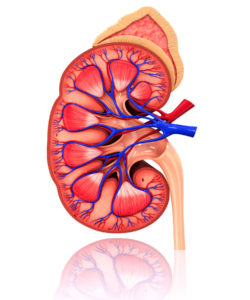
A new study has been conducted to determine whether SARS-CoV-2 – the virus that causes COVID-19 – infects cells of the kidney in patients with the virus who suffer acute kidney injury. To conduct their analysis, researchers studied the kidneys of 10 patients who had tested positive for COVID-19 with an RT-PCR test.
To examine the potential for the virus to have entered kidney cells, the scientists performed kidney biopsies and also imaged kidneys using ultrastructural examination via electron microscopy. Neither mode of analysis provided any evidence of viral infection of the kidney. Of the patients included in the study, 90% of them had no history of chronic kidney disease prior to their COVID-19 infection. The biopsies, however, showed different degrees of damage.
Based on what has been observed so far regarding COVID-19 and acute kidney failure, experts seem to agree that injury resulting from sepsis, shock, and hypotension are what leads to the kidney failure in these patients. Given that about one-third of the patients who become hospitalized for COVID-19 end up developing acute kidney injury, more data are needed to help determine the best way physicians can clinically prevent or treat this condition in these patients.
Reference
Hirsch, J.S. et al. (2020). Acute kidney injury in patients hospitalized with COVID-19. Kidney International, 98(1), 209-218.
